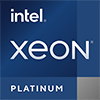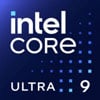
Apple M3 Max (14-CPU 30-GPU) Benchmark, Test and specs
Last updated:
The Apple M3 Max (14-CPU 30-GPU) has 14 CPU cores and can process 14 threads at the same time. The processor was presented in Q4/2023 and is based on the 3. Generation of the Apple M series series. In the Geekbench 5 benchmark, the Apple M3 Max (14-CPU 30-GPU) achieved a result of 2,150 points (single-core) or 20,961 points (multi-core).

| Name: | Apple M3 Max (14-CPU 30-GPU) |
|---|---|
| Family: | Apple M series (23) |
| CPU group: | Apple M3 (6) |
| Architecture: | M3 |
| Segment: | Mobile |
| Generation: | 3 |
| Predecessor: | Apple M2 Max (30-GPU) |
| Successor: | -- |
CPU Cores and Base Frequency
The Apple M3 Max (14-CPU 30-GPU) has 14 cores. The clock frequency of the Apple M3 Max (14-CPU 30-GPU) is 0.70 GHz (4.06 GHz). An initial performance assessment can be made using the number of CPU cores.
| CPU Cores / Threads: | 14 / 14 |
|---|---|
| Core architecture: | hybrid (big.LITTLE) |
| A-Core: | 10x P-Core |
| B-Core: | 4x E-Core |
| Hyperthreading / SMT: | No |
|---|---|
| Overclocking: | No |
| A-Core Frequency: | 0.70 GHz (4.06 GHz) |
| B-Core Frequency: | 0.74 GHz (2.75 GHz) |
Artificial Intelligence and Machine Learning
Processors with the support of artificial intelligence (AI) and machine learning (ML) can process many calculations, especially audio, image and video processing, much faster than classic processors. Algorithms for ML improve their performance the more data they have collected via software. ML tasks can be processed up to 10,000 times faster than with a classic processor.
| AI hardware: | Apple Neural Engine |
|---|---|
| AI specifications: | 16 Neural cores @ 35 TOPS |
Internal Graphics
The Apple M3 Max (14-CPU 30-GPU) has an integrated graphics that the system can use to efficiently play back videos. The Apple M3 Max (14-CPU 30-GPU) has the Apple M3 Max (30 Core) installed, which has 480 streaming multiprocessors (3840 shaders).
| GPU name: | Apple M3 Max (30 Core) |
|---|---|
| GPU frequency: | 0.39 GHz |
| GPU (Turbo): | 1.40 GHz |
| Compute units: | 480 |
| Shader: | 3840 |
| Hardware Raytracing: | Yes |
| Release date: | Q4/2023 |
| Max. displays: | 5 |
|---|---|
| Generation: | -- |
| Direct X: | -- |
| Technology: | 3 nm |
| Max. GPU Memory: | 96 GB |
| Frame Generation: | No |
Hardware codec support
Processors with integrated graphics can process video codecs faster. Support for modern codecs can significantly increase system efficiency during video playback.
| h265 / HEVC (8 bit): | Decode / Encode |
|---|---|
| h265 / HEVC (10 bit): | Decode / Encode |
| h264: | Decode / Encode |
| VP8: | Decode |
| VP9: | Decode / Encode |
| AV1: | Decode |
|---|---|
| AVC: | Decode |
| VC-1: | Decode |
| JPEG: | Decode / Encode |
Memory & PCIeThe Apple M3 Max (14-CPU 30-GPU) supports a maximum of 96 GB memory. Depending on the mainboard, the processor can use a maximum of 3 memory channels. This results in a maximum bandwidth of the main memory of 307.2 GB/s. |
|
| Memory type: | Memory bandwidth: |
|---|---|
| LPDDR5-6400 | 307.2 GB/s |
| Max. Memory: | 96 GB |
| Memory channels: | 3 |
| ECC: | No |
| PCIe: | 4.0 |
| PCIe Bandwidth: | -- |
Thermal ManagementThe Apple M3 Max (14-CPU 30-GPU) has a TDP of 50 W. Based on the TDP, the system manufacturer can and must adapt the cooling solution to the processor. |
|
|---|---|
| TDP (PL1 / PBP): | 50 W |
| TDP (PL2): | -- |
| TDP up: | -- |
| TDP down: | -- |
| Tjunction max.: | 100 °C |
Technical details
Modern production reduces the waste heat of a processor and increases its efficiency. The Apple M3 Max (14-CPU 30-GPU) is made in 3 nm and has 36.00 MB cache.
| Technology: | 3 nm |
|---|---|
| Chip design: | Chiplet |
| Socket: | -- |
| L2-Cache: | 36.00 MB |
| L3-Cache: | -- |
| AES-NI: | Yes |
| Operating systems: | macOS, iPadOS |
| Virtualization: | Apple Virtualization Framework |
|---|---|
| Instruction set (ISA): | Armv8-A (64 bit) |
| ISA extensions: | Rosetta 2 x86-Emulation |
| Release date: | Q4/2023 |
| Release price: | -- |
| Part Number: | -- |
| Documents: | -- |
Rate this processor
Benchmark results

The benchmark results for the Apple M3 Max (14-CPU 30-GPU) have been carefully checked by us. We only publish benchmark results that have been created by us or that have been submitted by a visitor and then checked by a team member. All results are based on and fullfill our benchmark guidelines.
Cinebench 2024 (Single-Core)
The Cinebench 2024 benchmark is based on the Redshift rendering engine, which is also used in Maxon's 3D program Cinema 4D. The benchmark runs are each 10 minutes long to test whether the processor is limited by its heat generation.

|
Intel Core i9-14900KS
24C 32T @ 6.20 GHz |
||

|
Apple M3 Pro (12-CPU 18-GPU)
12C 12T @ 4.06 GHz |
||
|
|
Apple M3 Max (14-CPU 30-GPU)
14C 14T @ 4.06 GHz |
||

|
Apple M3 Max (16-CPU 40-GPU)
16C 16T @ 4.06 GHz |
||

|
Apple M3 Pro (11-CPU 14-GPU)
11C 11T @ 4.06 GHz |
||

|
Intel Core i9-14900KF
24C 32T @ 6.00 GHz |
||

|
Intel Core i9-14900K
24C 32T @ 6.00 GHz |
||
Cinebench 2024 (Multi-Core)
The Multi-Core test of the Cinebench 2024 benchmark uses all cpu cores to render using the Redshift rendering engine, which is also used in Maxons Cinema 4D. The benchmark run is 10 minutes long to test whether the processor is limited by its heat generation.

|
Intel Core i7-13700
16C 24T @ 5.20 GHz |
||

|
Intel Core i5-14600K
14C 20T @ 5.30 GHz |
||

|
Intel Core i5-14600KF
14C 20T @ 5.30 GHz |
||
|
|
Apple M3 Max (14-CPU 30-GPU)
14C 14T @ 4.06 GHz |
||

|
Intel Core i7-13700HX
16C 24T @ 5.00 GHz |
||

|
AMD Ryzen 9 3950X
16C 32T @ 4.70 GHz |
||

|
Intel Core i5-13600KF
14C 20T @ 5.10 GHz |
||
Cinebench R23 (Single-Core)
Cinebench R23 is the successor of Cinebench R20 and is also based on the Cinema 4 Suite. Cinema 4 is a worldwide used software to create 3D forms. The single-core test only uses one CPU core, the amount of cores or hyperthreading ability doesn't count.

|
Intel Core i9-12900
16C 24T @ 5.10 GHz |
||

|
Intel Core i9-12900F
16C 24T @ 5.10 GHz |
||

|
AMD Ryzen 5 7600X
6C 12T @ 5.30 GHz |
||
|
|
Apple M3 Max (14-CPU 30-GPU)
14C 14T @ 4.06 GHz |
||

|
Apple M3 Max (16-CPU 40-GPU)
16C 16T @ 4.06 GHz |
||

|
Apple M3 (8-GPU)
8C 8T @ 4.06 GHz |
||

|
Apple M3
8C 8T @ 4.06 GHz |
||
Cinebench R23 (Multi-Core)
Cinebench R23 is the successor of Cinebench R20 and is also based on the Cinema 4 Suite. Cinema 4 is a worldwide used software to create 3D forms. The multi-core test involves all CPU cores and taks a big advantage of hyperthreading.

|
Intel Core i9-10940X
14C 28T @ 4.20 GHz |
||

|
Intel Core i5-13500
14C 20T @ 4.20 GHz |
||

|
Intel Core i7-13650HX
14C 20T @ 4.40 GHz |
||
|
|
Apple M3 Max (14-CPU 30-GPU)
14C 14T @ 3.60 GHz |
||

|
AMD Ryzen 9 5900
12C 24T @ 4.10 GHz |
||

|
AMD Ryzen 7 7700X
8C 16T @ 5.20 GHz |
||

|
Intel Core i9-12950HX
16C 24T @ 2.30 GHz |
||
Geekbench 5, 64bit (Single-Core)
Geekbench 5 is a cross plattform benchmark that heavily uses the systems memory. A fast memory will push the result a lot. The single-core test only uses one CPU core, the amount of cores or hyperthreading ability doesn't count.

|
AMD Ryzen 7 7700
8C 16T @ 5.30 GHz |
||

|
AMD Ryzen Threadripper 7970X
32C 64T @ 5.30 GHz |
||

|
Intel Core i9-14900HX
24C 32T @ 5.80 GHz |
||
|
|
Apple M3 Max (14-CPU 30-GPU)
14C 14T @ 4.06 GHz |
||

|
Apple M3 Max (16-CPU 40-GPU)
16C 16T @ 4.06 GHz |
||

|
Apple M3 (8-GPU)
8C 8T @ 4.06 GHz |
||

|
Apple M3
8C 8T @ 4.06 GHz |
||
Geekbench 5, 64bit (Multi-Core)
Geekbench 5 is a cross plattform benchmark that heavily uses the systems memory. A fast memory will push the result a lot. The multi-core test involves all CPU cores and taks a big advantage of hyperthreading.

|
AMD Ryzen 9 7900
12C 24T @ 4.70 GHz |
||

|
AMD Ryzen 9 PRO 7945
12C 24T @ 4.70 GHz |
||

|
AMD EPYC 73F3
16C 32T @ 3.80 GHz |
||
|
|
Apple M3 Max (14-CPU 30-GPU)
14C 14T @ 3.60 GHz |
||

|
AMD EPYC 7343
16C 32T @ 3.60 GHz |
||

|
AMD EPYC 7313P
16C 32T @ 3.40 GHz |
||

|
Intel Xeon Platinum 8168
24C 48T @ 3.00 GHz |
||
Geekbench 6 (Single-Core)
Geekbench 6 is a benchmark for modern computers, notebooks and smartphones. What is new is an optimized utilization of newer CPU architectures, e.g. based on the big.LITTLE concept and combining CPU cores of different sizes. The single-core benchmark only evaluates the performance of the fastest CPU core, the number of CPU cores in a processor is irrelevant here.

|
Intel Core i9-14900K
24C 32T @ 6.00 GHz |
||

|
Qualcomm Snapdragon X Elite (X1E-84-100)
12C 12T @ 4.20 GHzNot verified |
||

|
Apple M3 Pro (12-CPU 18-GPU)
12C 12T @ 4.06 GHz |
||
|
|
Apple M3 Max (14-CPU 30-GPU)
14C 14T @ 4.06 GHz |
||

|
Apple M3 Max (16-CPU 40-GPU)
16C 16T @ 4.06 GHz |
||

|
Apple M3 (8-GPU)
8C 8T @ 4.06 GHz |
||

|
Apple M3 Pro (11-CPU 14-GPU)
11C 11T @ 4.06 GHz |
||
Geekbench 6 (Multi-Core)
Geekbench 6 is a benchmark for modern computers, notebooks and smartphones. What is new is an optimized utilization of newer CPU architectures, e.g. based on the big.LITTLE concept and combining CPU cores of different sizes. The multi-core benchmark evaluates the performance of all of the processor's CPU cores. Virtual thread improvements such as AMD SMT or Intel's Hyper-Threading have a positive impact on the benchmark result.

|
Intel Xeon Gold 6442Y
24C 48T @ 2.00 GHz |
||

|
AMD Ryzen Threadripper PRO 7975WX
32C 64T @ 4.00 GHz |
||

|
AMD Ryzen 9 7950X3D
16C 32T @ 5.00 GHz |
||
|
|
Apple M3 Max (14-CPU 30-GPU)
14C 14T @ 3.60 GHz |
||

|
AMD Ryzen 9 7900X
12C 24T @ 5.40 GHz |
||

|
Intel Core i7-14700F
20C 28T @ 5.30 GHz |
||

|
Intel Core i7-14700
20C 28T @ 5.30 GHz |
||
iGPU - FP32 Performance (Single-precision GFLOPS)
The theoretical computing performance of the internal graphics unit of the processor with simple accuracy (32 bit) in GFLOPS. GFLOPS indicates how many billion floating point operations the iGPU can perform per second.

|
Apple M3 Max (16-CPU 40-GPU)
Apple M3 Max (40 Core) @ 1.40 GHz |
||

|
Apple M2 Max (38-GPU)
Apple M2 Max (38 Core) @ 1.40 GHz |
||

|
Microsoft XBox Series X
AMD Custom Radeon Graphics (XBox Series X) @ 1.83 GHz |
||
|
|
Apple M3 Max (14-CPU 30-GPU)
Apple M3 Max (30 Core) @ 1.40 GHz |
||

|
Apple M2 Max (30-GPU)
Apple M2 Max (30 Core) @ 1.40 GHz |
||

|
Apple M1 Max (32-GPU)
Apple M1 Max (32 Core) @ 1.30 GHz |
||

|
Sony Playstation 5
AMD Custom Radeon Graphics (Playstation 5) @ 2.23 GHz |
||
Performance for Artificial Intelligence (AI) and Machine Learning (ML)
Processors with the support of artificial intelligence (AI) and machine learning (ML) can process many calculations, especially audio, image and video processing, much faster than classic processors. The performance is given in the number (trillions) of arithmetic operations per second (TOPS).

|
Qualcomm Snapdragon X Elite (X1E-80-100)
12C 12T @ 1.00 GHzNot verified |
||

|
Qualcomm Snapdragon X Elite (X1E-84-100)
12C 12T @ 1.00 GHzNot verified |
||

|
Samsung Exynos 2400
10C 10T @ 3.20 GHz |
||
|
|
Apple M3 Max (14-CPU 30-GPU)
14C 14T @ 0.70 GHz |
||

|
Apple M3 Max (16-CPU 40-GPU)
16C 16T @ 0.70 GHz |
||

|
Apple M3 Pro (12-CPU 18-GPU)
12C 12T @ 0.70 GHz |
||

|
Apple M3 (8-GPU)
8C 8T @ 0.70 GHz |
||
Benchmarks

Cinebench 2024 (SC)
272 entries
272 entries

Cinebench 2024 (MC)
271 entries
271 entries

Cinebench R23 (SC)
586 entries
586 entries

Cinebench R23 (MC)
565 entries
565 entries

Geekbench 5 (SC)
2,488 entries
2,488 entries

Geekbench 5 (MC)
2,461 entries
2,461 entries

Geekbench 6 (SC)
1,755 entries
1,755 entries

Geekbench 6 (MC)
1,703 entries
1,703 entries

FP32 SP (iGPU)
2,042 entries
2,042 entries

AI / ML Performance
119 entries
119 entries
Popular comparisons
back to index





